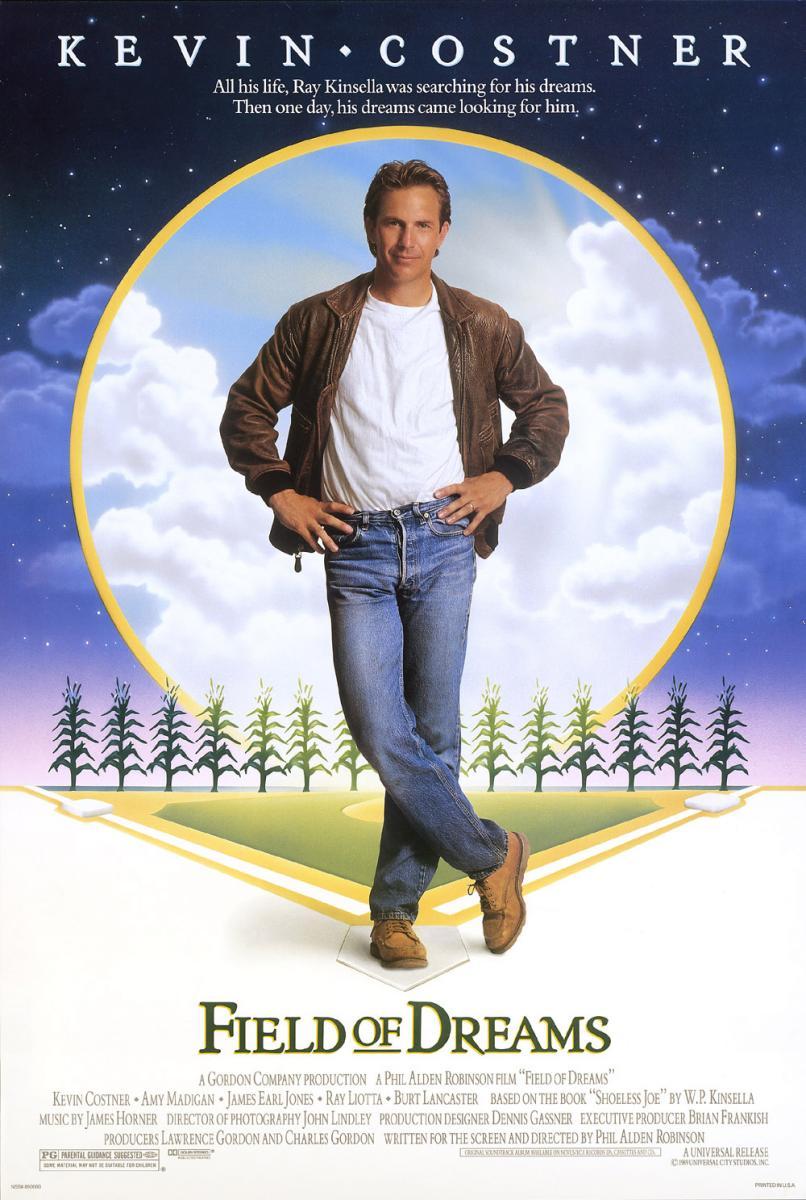Water Utilities and digital transformation: a serious challenge
31 August, 2018Why do 70% of software projects fail? Numbers and reasons
31 August, 2018
There’s a film created in 1989 called “Field of dreams”. Call me old fogey. The main actor is Kevin Costner who played a deep America farmer that suddenly decided to build a baseball field into his croplands. The reason? A voice inside his head that repeats the phrase “If you build they will come”. Honestly, despite the film is plenty of weepy moments thought to strikes the chord, it didn’t excite me a lot. What really left me mark was the absolute resolution of Ray Kinsella (Kevin’s name into the film) to build the field at all costs in spite of, he didn’t really know why.
And this is one of the ideas where I would like to go around today, about the digital product manager core competencies and their values, the necessary ones in order to succeed in creating a successful product. And I will not focus on complicated technological skills or rare methodologies but on much more analogical and mundane aspects. I will talk about competencies don’t require years and years studying complex MBA studies or long PhDs. Because much of our success in life is due to the attitude we face. Knowledge is important. The skills too. But those competences forged on our attitude towards life and its vicissitudes, those are the ones that multiply.
Grit
I would like to talk about unbreakable determination, about fight against all odds to defend what you know is the right decision. Regarding his product, the Product Manager is god. And I’m referring to the real PM, the true product heroes, the real killers that understand and have product management streaming through their veins. Not the ones who normally are doomed by their organizations to lead the Product Management process. He or she is who orchestrates everything around to finally take the right decision about build and launch a product onto the market. And he does helped by a lot of brilliant people like UX, marketing, engineering and so on. So, according to the available information that usually is less than you can imagine, the Product Manager should take a crucial decision.
From this moment on, the torment starts. The poor PM will have to justify every day of his life why he took the decision. One day will be the Business Case. Another will be positioning or branding. The next will be pricing or whatever. Organizations are plenty of people eager to call into question any of these key elements of the product. The reason? A bad understood need to control protected by his position into the organization. A complete waste of time for the PM. And this is a chronic problem for the old mentalities trapped into a constant changing market. When PM does his job well and creates a valuable, new, original, different and often rule-breaking product, the past anchored organizations starts to tremble. It’s when the Peter Drucker’s famous phrase make sense: “Culture eats strategy for breakfast”. So I’m sorry. But I have to say that I shit on culture when this is synonymous of extreme risk aversion and old-fashioned stigma.
In this way the first competence of your Product Manager should be a deep determination to defend his product. He or she knows that if he builds it customer will come and buy the product. He’s sure of that and in order to assure the success he will do his bit to transmit the golden ideas inside your brain to the team. Because, as Angela Lee Duckworth demonstrate in the following TED talk, perseverance, determination and grit are the main characteristic distinguishes those who achieve success. Maybe it does not always mean to become a millionaire, but only to reach the end of the course with your students in a highly conflictive school. Success here means knowing most of them have learned enough to have new opportunities in life.
Integrity
Second one you have to find in your PMs is integrity. And this what I want to talk about in this second part of the post. We can’t lie to our customers about what our product does. No matter the pressure we suffer from the ones who wants to give an extra value to our customer. Product marketing must be always ethic. Otherwise we should accept the consequences.
Regarding the ethics, first we must say that any kind of cheating, in whatever way comes, is unacceptable. Our duty as markerters is to provide consumers with the information they need to make a correct decision as clearly and simply as possible. Using web media that can give a sense of darkness or second intentions to consumers would cause the opposite effect to that wish.
On the other hand, we must consider the consumer fickleness. There are consumers who want that you warn them and many others who prefer to find information themselves. It is normal, depending on their previous experiences in the Web, that they can change their preferences. Sometimes they like that the Web "guess" their needs and then they will leave advice easily, while others may feel harassed. In any case, it has to be simple and easy for users to unsubscribe and regain their anonymity. As we all know, this is not the normal. It seems that markerters prefer the consumer surrender in order to keep them bombarding with new products or promotions. That strategy again, apart from being unethical, produces the opposite effect for the brand that uses it.
Another fundamental aspect is the protection of consumer data. It is important that consumer information is handled according to the corresponding law in each country. Here, we are not talking of ethics but talking about crime. Related to the protection of privacy and not be contacted without consent, we should refer to the agreements we’re forced to sign to enter in some Internet sites and install software products. Anytime more, these tend to be more aggressive with the consumer privacy, bordering many times abuse. These agreements often contain clauses that could legally protect unethical behaviors and future actions .
As a marketer I like to think that what I’m sending is of the customer interest. In despite I do not like mailing campaigns too much, I can consider them one of the best and fastest ways to reach the customer. I always prefer using information bites placed on specialized websites which allow redirections where customers can find the right and complete information. In the same way I consider necessary also advertising banners but I’ve got my concerns with pop-ups which could cause a bad effect to users. This is probably due to overuse (and misuse) done by many companies and websites anxious to arrive in the fastest way to end users, no matter the annoying potential effect. All these ways of communication seem ethical to me as long as the end user has consented to receive such information.
Personally I am extremely zealous to maintain my privacy and I hate to harass me with information I do not need. I am aware about all the opportunities lost by the way and I assume that. What I find not ethical is how some companies (like Google) act. It’s like I need a body scan in order to get the best advertisements. My perception is that they are controlling me. Sometimes it’s irritating when you receive an offer for a trip to the Rio’s carnival because you typed the word "Brazil" on a mail. The power of cookies…
We’re crazy if, on top of break any of these basic ethical rules, we provide false information to the market. And this happens more often than you could imagine. No matter if we do unconsciously or brainless conscious, usage of “kick the can down the road” strategy must be eradicated of software industry. Maybe the best definition for this strategy is the TV serie “Silicon Valley”. I can’t remember what season is. The fact is that Galvin Belson, CEO of Holli that represents a monster software company, generates a huge marketing campaign around his top coming product: Nucleus. The funniest of this story is that Nucleus is an absolute fiasco. But Gavin, far from be intimidated, makes the ball bigger and bigger. A beautiful example of “kick the can down the road” strategy.
Summarizing and assuming the risk that sound utopic like “Field of dreams”, we must fight for our dreams to build the product and once we’re in the right direction, make an ethic and honest marketing. If as I’m absolutely convinced, the product is good, they will come.








